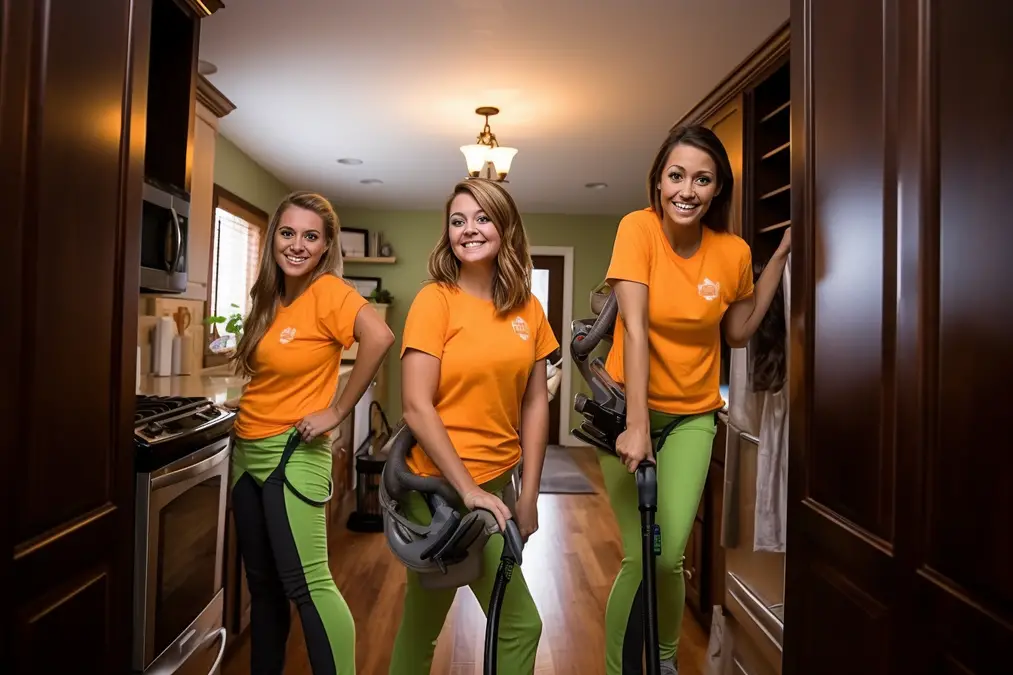Cleaning Jobs in the USA: Everything You Need to Know
The cleaning industry in the United States represents a substantial sector of the economy, employing millions of workers across residential, commercial, and specialized cleaning services. For job seekers considering this field, cleaning positions offer accessibility with varying entry requirements, flexible scheduling options, and opportunities for advancement. Understanding the landscape of cleaning jobs, from typical roles and responsibilities to wage expectations and growth potential, is essential for those exploring this career path.

The Cleaning Industry in the USA
The cleaning industry in the United States is a robust economic sector that continues to demonstrate resilience and growth. According to the Bureau of Labor Statistics (BLS), over 2.3 million people work in janitorial and cleaning occupations, with thousands more in specialized cleaning niches. The industry encompasses numerous segments, including commercial cleaning, residential services, disaster restoration, and specialized cleaning for healthcare facilities, schools, and industrial settings.
Commercial cleaning represents the largest segment, with businesses routinely contracting cleaning services for offices, retail spaces, and industrial facilities. Residential cleaning services have seen significant growth in recent years as more households outsource home cleaning tasks. Specialized segments like medical facility cleaning, post-construction cleanup, and eco-friendly cleaning services have emerged as growing niches within the broader industry.
The COVID-19 pandemic fundamentally transformed the cleaning industry, elevating cleaning protocols and increasing demand for disinfection services. This shift has created new job opportunities and specializations, particularly in sanitization and deep-cleaning services.
Types of Cleaning Jobs and Requirements
Cleaning positions span a wide spectrum of roles with varying skill requirements and specializations. Entry-level positions typically include janitors, housekeepers, and general cleaners who maintain cleanliness in commercial buildings, hotels, or residential properties. These positions generally require minimal formal education but benefit from on-the-job training.
Mid-level positions often include team leaders, specialized technicians (like carpet cleaning specialists or window washers), and cleaning supervisors. These roles usually require some experience and possibly specialized certifications or training in specific cleaning methods or equipment operation.
Advanced positions in the industry include cleaning service managers, facility maintenance directors, and cleaning business owners. These roles typically require substantial experience, management skills, and sometimes business acumen or formal education in management.
Regardless of the position, essential qualities for success in cleaning jobs include attention to detail, reliability, time management skills, physical stamina, and increasingly, knowledge of environmentally friendly cleaning practices and safety protocols.
Compensation and Benefits in Cleaning Jobs
Compensation in the cleaning industry varies significantly based on factors including location, employer type, specialization, and experience level. According to the BLS, the median annual wage for janitors and building cleaners was approximately $29,580 as of 2020, with variations based on industry and geographic location.
Entry-level positions typically offer hourly wages starting near minimum wage, while specialized technicians and supervisors can command higher compensation. Commercial cleaners working for large corporations or government facilities often receive higher wages than those in residential cleaning. Specialized cleaning roles in healthcare or hazardous environments typically command premium pay rates due to additional training and risk factors.
Benefits packages vary widely across the industry. Full-time positions with established companies or institutions may offer health insurance, paid time off, and retirement benefits. However, part-time or contract cleaning positions often have limited benefits. Many cleaning professionals work for small businesses or as independent contractors, which affects benefit eligibility.
Prices, rates, or cost estimates mentioned in this article are based on the latest available information but may change over time. Independent research is advised before making financial decisions.
Career Development Opportunities
The cleaning industry offers numerous pathways for professional advancement, contrary to common misconceptions about limited growth potential. Career development in cleaning can follow several trajectories based on individual goals and interests.
One typical progression path begins with entry-level cleaning positions, advancing to team leader or supervisor roles that involve coordinating cleaning teams and ensuring quality standards. With experience, opportunities emerge for management positions overseeing entire cleaning operations for facilities or companies. Some professionals leverage their expertise to specialize in lucrative niches like post-disaster cleanup, medical facility sanitization, or eco-friendly cleaning services.
Education and certification opportunities abound within the industry. Organizations like the International Sanitary Supply Association (ISSA) and the Building Service Contractors Association International (BSCAI) offer certifications that can enhance career prospects. These include Cleaning Management Institute (CMI) certifications, ISSA’s Cleaning Industry Management Standard (CIMS) certification, and specialized training in areas like bloodborne pathogen cleanup or green cleaning practices.
Entrepreneurship represents another significant career path, with many experienced cleaning professionals establishing their own cleaning businesses. This route requires additional business management skills but offers greater income potential and autonomy.
Future of Cleaning Jobs in the U.S.
The outlook for cleaning jobs in the United States remains positive, with the Bureau of Labor Statistics projecting steady growth in the coming years. Several key trends are shaping the future landscape of cleaning employment opportunities.
Technology integration is transforming cleaning operations, with automated cleaning equipment, robotics, and digital management systems becoming increasingly common. Rather than eliminating jobs, these technologies are changing the skill requirements, with greater emphasis on technical knowledge to operate advanced equipment.
Heightened health awareness following the COVID-19 pandemic has created a lasting impact on cleaning standards and expectations. This has generated increased demand for trained cleaning professionals who can implement enhanced sanitization protocols, particularly in healthcare facilities, schools, and high-traffic commercial environments.
Sustainability concerns are driving growth in green cleaning practices and eco-friendly services. Cleaning professionals with knowledge of environmentally responsible techniques and certifications in green cleaning are finding expanded opportunities as businesses and consumers increasingly prioritize sustainability.
The gig economy has influenced the cleaning industry, with digital platforms connecting independent cleaners directly with clients. This trend offers more flexible work arrangements but comes with challenges regarding consistent income and benefits.
As the industry evolves, cleaning professionals who adapt to these changes by developing specialized skills, embracing technology, and pursuing certifications will be best positioned to thrive in the future cleaning job market.




